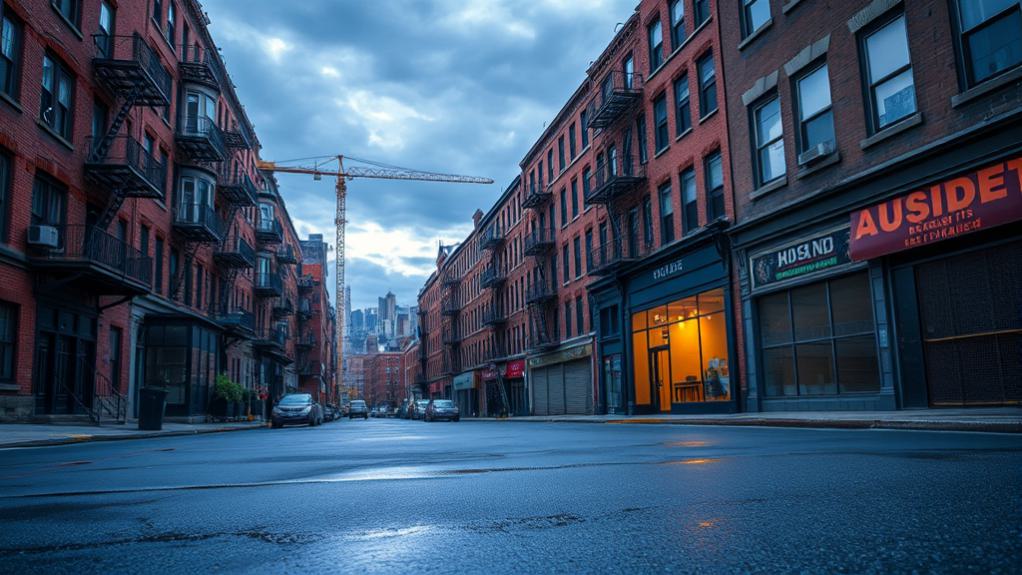Policy shifts in Singapore’s housing sector have heightened lease decay concerns for HDB flats. The Vers redevelopment pathway seeks clarity on land use, while the lease framework evolves with land recycling goals, shaping expectations for valuations and owner planning. Lease terms and compensation mechanisms remain under refinement, affecting market confidence. Authorities balance urban renewal, affordability, and tenure by monitoring expiry schedules, residual values, and possible extensions. The implications will unfold as specifics materialize, inviting ongoing assessment.

Understanding Lease Decay in HDB Flats
Beginning with a structural overview, the HDB public housing system operates on a 99-year lease framework, a tenure construct that underpins asset planning, land recycling, and long-horizon municipal strategies. Lease renewal considerations emerge as remaining terms shorten, influencing valuation, maintenance planning, and future capital commitments. Observers note that property depreciation trajectories are tied to parcel age, refurbishment cycles, and demographic shifts, requiring disciplined asset management within portfolio baselines. Quantitative assessments indicate gradual value erosion toward the midpoint of leases, while renewal options affect refinancing terms, budgeting, and stakeholder confidence in housing markets. Professional property valuations for HDB flats must account for government regulations including subsidized land costs and Minimum Occupation Period restrictions that differentiate them from private residential properties. Objective analysis emphasizes transparency and predictable governance.
Vers: The Upcoming Redevelopment Pathway
Vers represents a planned trajectory for proactive redevelopment within HDB precincts, with specifics anticipated within the next five years as policy details mature and implementation frameworks are formalized. The pathway foregrounds Lease Extension considerations and asset renewal, aligning with land-recycling imperatives and demographic demand curves within precincts. Officials describe phased redevelopment options, consolidated timelines, and compensation schemas, while maintaining attention to Structural Integrity and safety standards during evolutions. Stakeholders are invited to observe transparent governance processes, with documentation detailing criteria, eligibility, and evaluation metrics. The approach prioritizes orderly land use, coordinated investment, and predictable redevelopment outcomes for communities alike. These redevelopment initiatives complement Singapore’s broader property sector resilience, which has attracted investors through proactive governance models and transparent regulatory frameworks amid global economic uncertainty.
Impacts on Flat Owners and Market Value
An assessment of the forthcoming Vers framework indicates potential shifts in flat-owner considerations and market valuation tied to lease decay dynamics and proactive redevelopment options. Observers note that ownership transition processes could influence pricing trajectories, with clearer timelines and compensation expectations shaping investor confidence. In parallel, renovated stock may benefit from renovation subsidies, enabling more predictable redevelopment costs and smoother market renegotiations for stakeholders. However, uncertainty about Vers design parameters and timing remains, requiring ongoing documentation of lease lifespans, potential compensation schemes, and impacts on liquidity, mortgage lending, and long-run cap rates for precincts under transition and strategic planning. Additionally, the complexity of HDB flat inheritance without proper estate planning can further complicate ownership transitions and market valuations during redevelopment processes.
Policy Evolution and Land Recycling Strategy
Policy evolution in Singapore’s public housing framework is informed by ongoing assessments of lease decay and land recycling imperatives. The discourse centers on lease longevity as a core metric guiding redevelopment decisions, with policy adaptation aligning land disposal, lease extension options, and asset lifecycle management to urban renewal objectives. Stakeholders note that governance structures emphasize transparency, data-driven planning, and risk mitigation, while maintaining occupant belonging through consistent standards and predictable processes. Public housing authorities leverage // formal mechanisms to coordinate Vers timelines, valuation approaches, and cross-agency oversight, ensuring land recycling strategies support sustainable growth and fiscal resilience for stakeholders. When disputes arise regarding lease terms or housing matters, residents can seek resolution through Small Claims Tribunals for claims up to $20,000 or utilize mediation services for alternative dispute resolution.
Preparing for the Decay: Planning and Opportunities

How might lease decay influence structured planning and opportunity assessment within Singapore’s public housing framework as Vers approaches implementation? Regarding this situation, planners evaluate implications for private ownership dynamics, asset lifecycles, and strategic land recycling, noting that the 99-year lease model governs vast HDB stock. Lease duration anchors redevelopment timelines, financing feasibility, and performance metrics, while Vers proposals may shift risk sharing and compensation structures. Stakeholders scrutinize mitigation pathways, ensuring orderly transition from existing leases to proactive redevelopment options. Policy alignment with land reuse remains central, balancing affordability, housing stability, and long-term urban resilience in a changing regulatory landscape. The current market environment shows land scarcity continues to exert upward pressure on property values, which may complicate redevelopment economics and compensation calculations under evolving lease decay scenarios.
Frequently Asked Questions
How Does Vers Affect HDB Resale Timelines?
Vers offers lease extensions through proactive redevelopment, stabilizing resale timelines. By opening options before expiry, it may shorten uncertainty, aligning narratives and fostering shared belonging, while influencing resale timelines and compensation discussions for HDB owners.
Will Vers Compensate Flats Before Lease Ends?
Approximately 40 years remain on the oldest HDB leases. Vers may include Lease extension and flat compensation for select precincts, offering proactive options before expiry while preserving ownership value and fostering belonging among current residents.
What Are Eligibility Criteria for Participating Blocks?
Eligibility criteria for participating blocks require alignment with Vers precincts, lease status, owner consent, and governance suitability. Lease extension opportunities hinge on outcomes of eligibility screening, ensuring access and belonging for eligible residents across precincts.
How Will Vers Impact Flat Monthly Maintenance Costs?
Vers could modestly influence maintenance costs through shared redevelopment investments, aligning charges with lease extension plans; coincidence suggests higher upfront costs taper toward stability as leases extend, creating a sense of community belonging amid upkeep.
Could Vers Create Regional Redevelopment Disparities?
Vers could create regional redevelopment disparities if eligibility, funding, and timing unevenly favor certain precincts, influencing urban renewal and socioeconomic disparities, though policy aims for inclusive redevelopment that mitigates inequities and fosters belonging for residents.
Conclusion
Conclusions confirm continued concerns surrounding lease decay, capacity constraints, and citywide redevelopment. Authorities announce proactive pathways, including Vers, validating volatile valuations and variable compensation prospects, while preserving policy continuity and planner prudence. Market operators monitor multifaceted measures, mapping timelines, lease terms, and potential extensions with rigorous risk assessment. Stakeholders scrutinize sustainable strategies, seeking stable stewardship, state-led support, and procedural transparency through transparent timelines, tractable progressions, and well-documented data, driving disciplined decision-making and durable development horizons.





